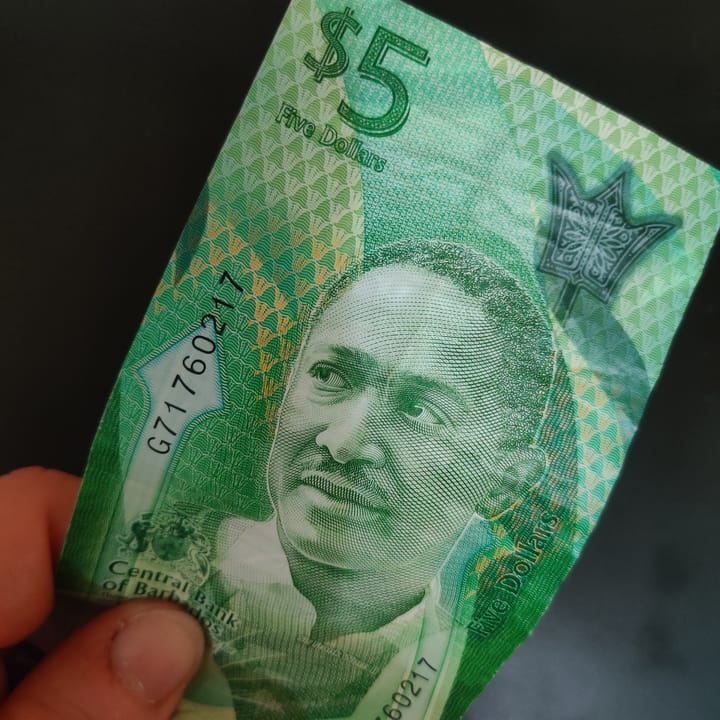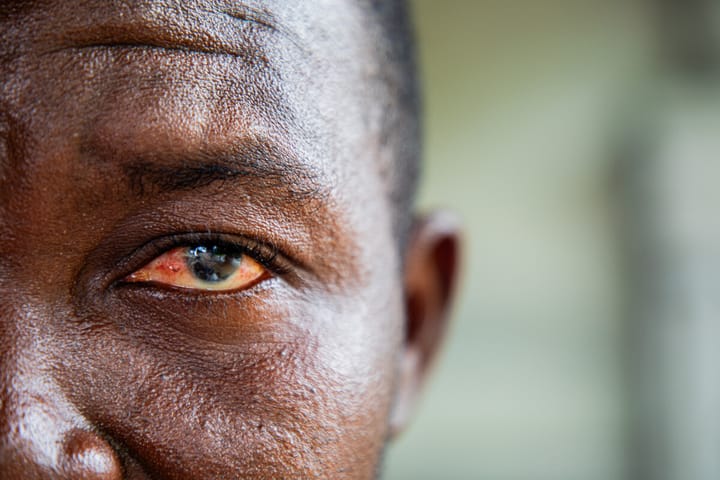The 'one shot' campaign to get a strong legal statement on climate change
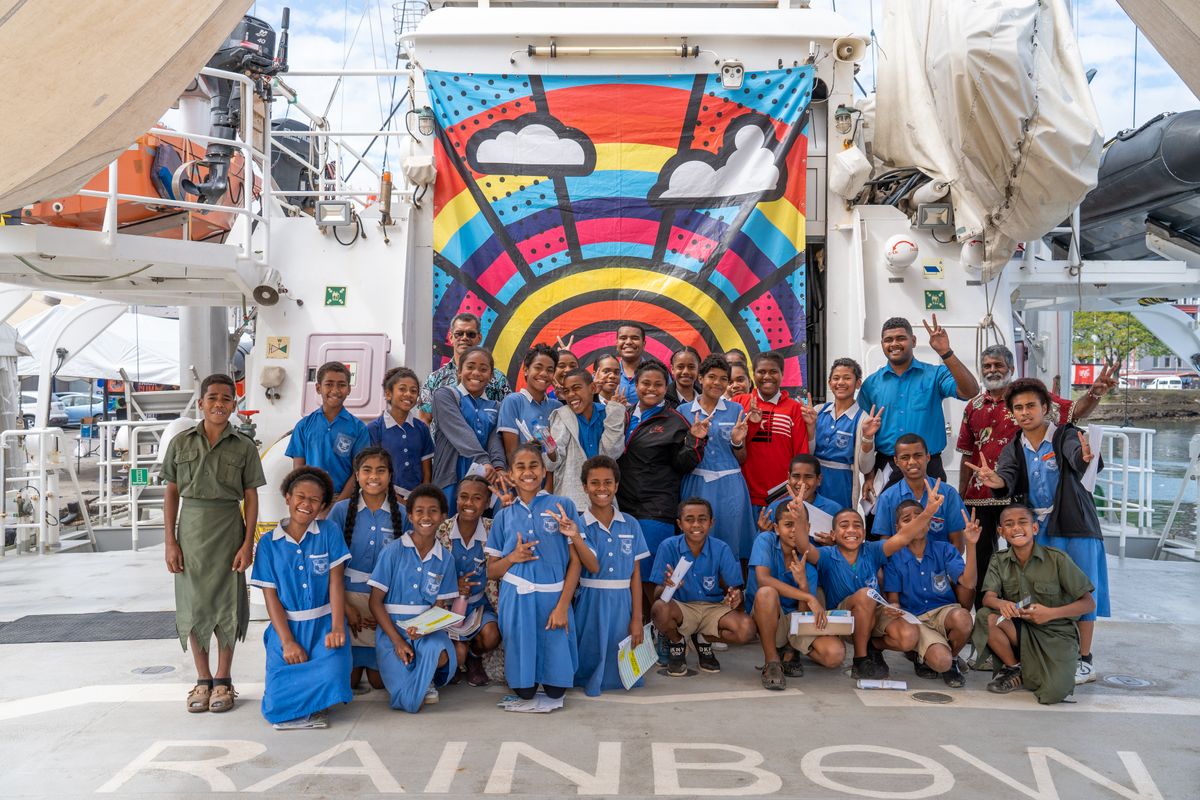
The campaign to get the International Court of Justice to write an advisory opinion on climate change had a major victory earlier this year, but its work has only just begun
Vishal Prasad wasn't one of the initial group of students at the University of the South Pacific whose classroom conversations in 2019 were the crucible for a seemingly far-fetched idea to ask the world’s top court to make a statement on climate change and human rights. But he joined as its full-time campaigner a few months later, once things started to take off, fresh from a degree in law and politics.
Prasad tells The Wave he had long imagined working on climate change. “It was very, very crucial and something that I had a lot of interest in. So when the opportunity came with the advisory opinion campaign… it seemed like it had the potential to really catalyse climate action.”
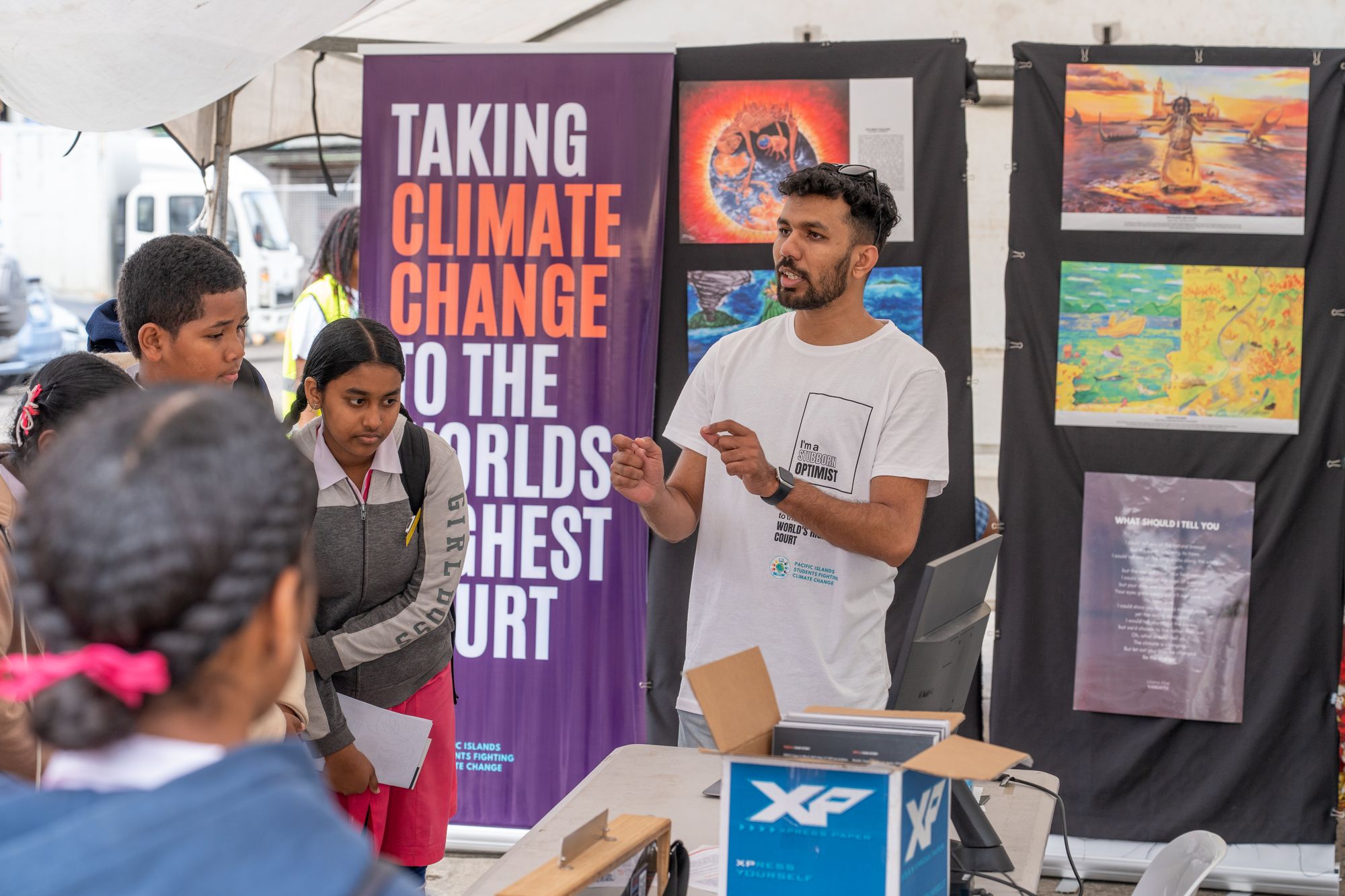
Now campaign director of Pacific Island Students Fighting Climate Change (PISFCC), Prasad has helped move a theoretical legal discussion into a massive global operation that has garnered support from thousands of civil society organisations and dozens of governments across the world.
In March, the UN General Assembly approved a resolution recognising the huge challenge of climate change and calling on the International Court of Justice (ICJ) to provide an advisory opinion on what the legal obligations of states are in addressing it.
The decision was a landmark moment. Ishmael Kalsakau, then prime minister of the Pacific island of Vanuatu, which led the initiative alongside PISFCC, described it as “a win for climate justice of epic proportions”.
Prasad says the size of the campaign, as well as growing expectations from people about what it could achieve, was overwhelming at times.
PISFCC had its own challenges because most of its members are students, so many have come and gone due to academic and career pressures and competing interests.
But there has always been a steady stream of interest from young people in the Pacific, as well as abroad, and the core team has remained, giving it much-needed continuity. “It has been a very long journey, a very interesting journey that has every step of the way surprised me,” says Prasad.
Careful and intentional work
Behind the scenes, a huge diplomatic effort was taking place so that the UN resolution could be adopted by consensus.
“We've had challenges, of course, there’ve been many,” says Prasad. “But there has been a lot of careful strategic and very intentional work put into the campaign to ensure that it.. is able to get the most progressive, most ambitious outcome as possible.”
“We only have one shot at this,” he adds.
Although it succeeded in its first ambitious goal, the campaign’s work is not yet over; the team is now working hard to encourage states to submit their written statements to the ICJ and to influence how they are framed.
Juan Auz, postdoctoral researcher in transnational ecological law at Tilburg University, is helping the student group develop its strategies.
He notes that the ICJ is quite restrictive on what evidence it will allow, because it was designed to settle disputes between states. In previous advisory opinions it has rarely referred to written statements that do not come directly from governments.
By contrast, both the Inter-American Court of Human Rights and the International Tribunal of the Law of the Sea, which are due to publish their own advisory opinions on climate change before the ICJ, are more open to submission from non-state groups. ITLOS, for example, has published submissions from NGOs such as Opportunity Green and WWF (although it says these are not strictly within the rules). And the Inter-American Court has even accepted written submissions from individuals.
Such restrictions at the ICJ mean campaigners must focus their efforts on state submissions and find creative ways of doing so.
A key part of this is a handbook, developed by a research team from PISFCC and World’s Youth for Climate Justice, which outlines what the ICJ is asking for, the legal landscape and how to respond. Parts of it have been translated into English, Spanish, Arabic and French.
The summary for policymakers describes the ICJ process as a “unique opportunity” for all UN member states to help shape the development of international law, and urges them to “take full advantage”.
"Those that are in the frontlines of the climate crisis really have a very historic opportunity to contribute towards this development"
“Today’s leaders owe a solemn legal and moral obligation to their youth and future generations of citizens to advocate on behalf of their interests at every significant opportunity,” says the handbook. “There will be few opportunities to do so that are as significant, and that offer as much potential to force positive change, as the upcoming climate advisory proceedings.”
Campaigners are especially keen to get submissions from climate-vulnerable states. “We really see this as an opportunity for countries, especially in developing countries, to help shape the development of international law,” says Prasad. “Those that are in the frontlines of the climate crisis really have a very historic opportunity to contribute towards this development so that it is positive for them and us.”
He adds that the value of the final opinion relies heavily on the quality of state submissions, as well as the specific legal question that has been asked.
States that are more vulnerable to climate change are working together to try to raise awareness and to share legal knowledge.
Our Pacific writeshop on the ICJ advisory opinion on climate change has begun! Over the next few days, Pacific Island Countries will work together to sharpen and advance our most compelling arguments for climate justice. Thanks to Vanuatu, Fiji & SPC for bringing us together. pic.twitter.com/UHeUtFPmL5
— Julian (@julian_aguon) July 23, 2023
Auz thinks they will respond because they have so much at stake. “They will try to steer the advisory opinion forwards to a more progressive and protective type of opinion. The high-emitting countries won’t allow that and will try to maintain the status quo and the vagueness of the law as it is.”
But Prasad notes that these governments face many challenges, including constraints on time, resources and legal expertise, which is why the campaign is trying to get it into the hands of as many officials as possible.
To give themselves breathing space, Vanuatu, Chile and the Commission of Small Island States on Climate Change and International Law (the group that formally petitioned the International Tribunal for the Law of the Sea for its own opinion on climate change) asked the ICJ over the summer for a three-month extension for written statements.
That has since been accepted, so all governments now have until January to submit their views. “That’s very good,” says Margaretha Wewerinke-Singh, associate professor of sustainability law at the University of Amsterdam, who is providing legal advice to Vanuatu on its submission alongside indigenous human rights lawyer Julian Augon.
Human rights and intergenerational equity have been central to the campaign since it started and have remained a key focus. Prasad says this language is crucial because it ensures people are at the heart of the topic and it also provides states with a better understanding of their obligations “that can catalyse greater action and help break the climate deadlock”.
“We hope it will result in an advisory opinion that does touch on these two vital themes,” he says.
"Young people are unable to ‘wait their turn’ to voice our concerns about climate change"
The handbook’s legal memorandum goes into detail on these topics, as well as the specific rights of children, cultural and gender equality, environmental rights and the principle of non-discrimination.
It also urges states to involve “young change-makers” who are actively working to prevent climate injustice in preparing written and oral submissions to the court, whether in person or through audiovisual technology. “Young people are unable to ‘wait their turn’ to voice our concerns about climate change,” says the document.
Prasad says the response so far has been positive. “The handbook and the work that's gone into producing, amplifying and distributing it gives me great optimism. From what we've heard in terms of reviews from academics etc, and people just on the ground, this is a great tool and this is a great way for us to support states.”
A 'completely new animal'
PISFCC has also been looking at how civil society can contribute through other submissions too, such as UN agencies. The ICJ has accepted submissions from at least the IUCN, which include states as well as non-governmental groups.
Auz says this emerging engagement with organisations is already unprecedented, “maybe because of the nature of the problem, maybe because the ICJ doesn’t have all the technical capabilities”.
“In the past the ICJ had to deal with issues specific to certain countries or certain matters that do not necessarily involve the majority of civil society,” says Auz. "Climate change is a completely new animal; it concerns us all.”
Prasad says it is important that people feel they can influence the process so that they have a stake in it and so that the final opinion reflects their experiences and concerns. One idea is to include annexes to state submissions which feature stories from the frontline of climate change, “so that the ICJ does hear the lived realities of people on the ground”.
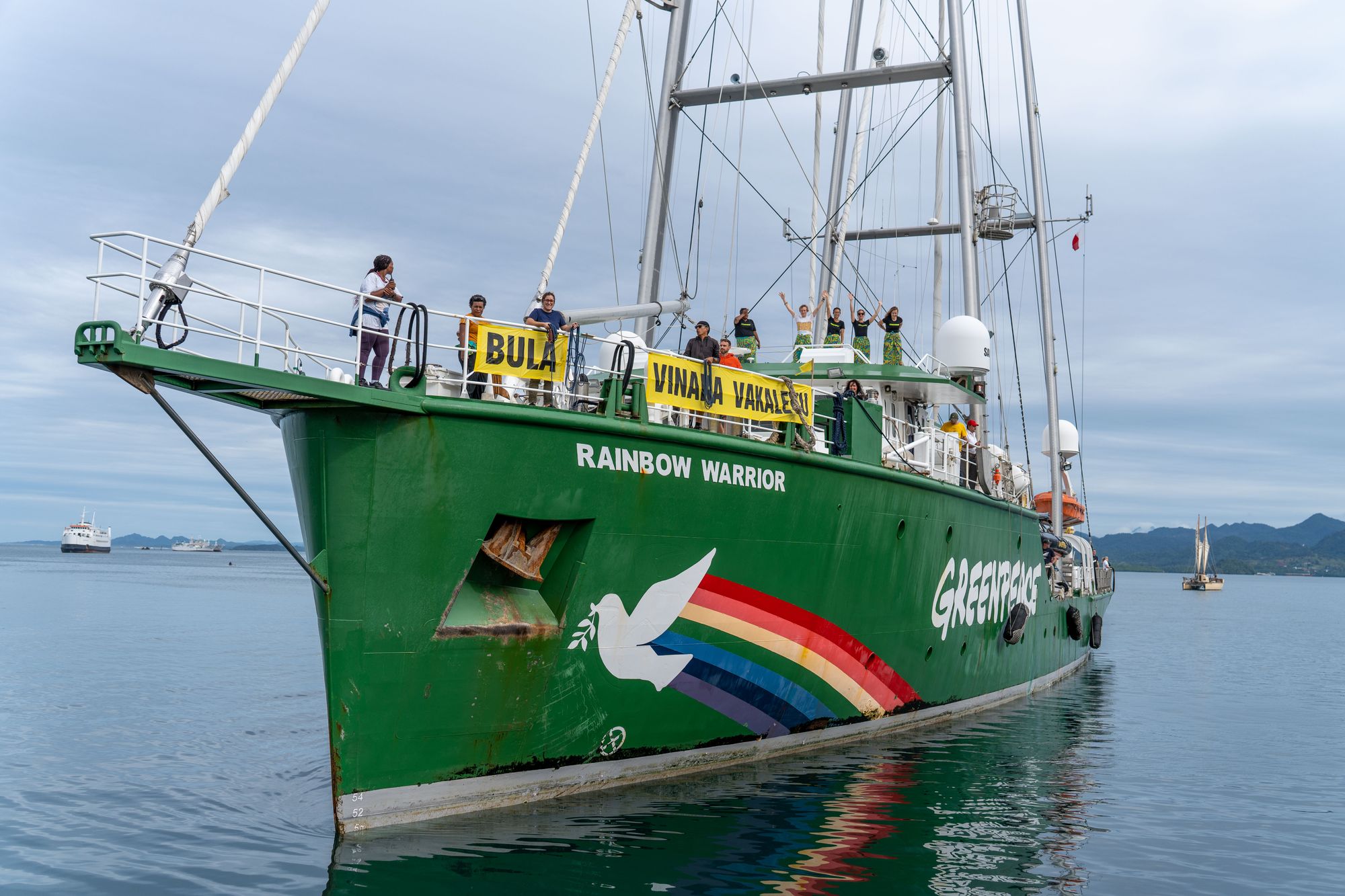
Over the summer, Greenpeace’s iconic Rainbow Warrior ship has been sailing across the Pacific, calling at ports to bring activists together, educate people about climate change and the ICJ opinion and to collect evidence. You can follow its progress here.
Civil society organisations are working on this too, with many clustered under the umbrella of World's Youth for Climate Justice taking the campaign to their own countries and regions.
A number of media and marketing organisations are also trying to get the message out there on social media. The Not Just Celsius project, for example, is publishing explainers, photos and personal stories on Instagram.
It is also launching a tool called the Scale in October, which shows how differently nations are vulnerable to climate change and how unequally they have contributed to global CO2 emissions. You can see the beta version here.
“We want this advisory panel request to be different in the sense that we want it to be as inclusive as possible, because the process can be quite exclusive,” says Prasad, who recently presented the campaign aboard the Rainbow Warrior in Fiji.
“That's the reason why we're trying to broaden this base to include ordinary people and to bring to their awareness the importance of the campaign: Why is this being done? How can it help? So that when the opinion does come out, we have people who have been galvanised.. who are willing to use it as a tool in their arsenal.”
The written statements will be followed by oral hearings, which are expected to take place next year, before the ICJ issues its final advisory opinion. That is unlikely to happen earlier than 2024, experts says.
Wewerinke-Singh says it’s important to remember that the opinion itself is not an endpoint either. “Of course, there's room for a bit of celebration, if it's a good opinion, but then lots of work still lies ahead in making sure that is really brought to life.”
Prasad is optimistic about the document that the ICJ will finally public, but remains pragmatic. “It's not going to solve all our problems. It's not going to wash away the climate crisis. It’s just going to be one tool that people, civil society, governments will have to utilise in addressing the climate crisis.”

